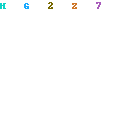The author David Kessler is an MD, a JD (lawyer) and was Commissioner of the FDA in the 90s when he took on Big Tobacco. I guess we can thank him for alot more warnings about how bad smoking is for you.
The cool thing about this book is that it's based in science and he talks about alot of studies, including tests with animals (sad!). But at the same time he isn't talking in Medical-ese. It's easy to understand. There is alot about brain chemistry and why people get a reward from certain foods, seek out rewards from food, and will continue to eat after their body says they are full.
In much of the book he "attacks" Big Food - the processed food industry - and even breaks down typical foods at actual restaurants. He tells us that the food industry has created "highly palatable foods" - that is foods that people find irresistible - through optimal amounts of sugar, fat, and salt which effects not only taste, smell, color, mouth feel and a bunch of other things that make food yummy and appetizing. He touches on food chemicals too and how many "highly palatable foods" contain chemicals that taste or smell like a food, but aren't actually made from that food (like cheese on cheese flavored chips) and why it's preferable for the food company to use it. Basically the food industry are making addicting food products. Some of the studies he quotes show that this type of food effects the same areas of the brain as hard drugs.
However, Kessler doesn't put all the blame on the food industry. After all it's a product and we don't have to buy it, much less consume it. He talks about this type of behavior becoming habit to the point where the person is habitually mindlessly eating and usually overeating. Of course there are more studies involved that show why some people are more prone to behavior he coins "conditioned hyper-eating." It's more than over eating, or binging. It's habitual and it's practically all consuming. The final part of the book is called "Food Rehab" where lays out a number of tools all or some of which may be helpful to someone who's prone to "conditioned hyper-eating."
I like that the book was easy to understand despite the number of experts and scientific studies he quotes. Most of the food and restaurants he uses as examples aren't ones that I eat or go to very much, but I know people who do and I see them everywhere. It just so happens that my weaknesses lie elsewhere. I could totally relate to the real life over-eaters he interviewed. Not all were overweight either. Some, like me, are not chronic or can maintain a healthy weight through exercise. But they all had something I could relate to including that mental debate I go through when thinking about a food I want before getting, then eating it and afterward. Event the author admitted to having this problem and used himself as an example many times.
I think anyone who feels a weakness around certain types of food or has a problem with binging would benefit from reading the book. It gives insight into why we do this both mentally and physically. Awareness is key obviously. Once we know how we are being manipulated by our own brain chemistry as well as the food industry we can take steps to take control back. I don't think this book will be a magic lever that will make me stop obsessing (even just mentally). Kessler admits that food rehab is hard work and takes time, but with the hard work eventually it is possible to get it under control.
Subscribe to:
Post Comments (Atom)



0 comments:
Post a Comment